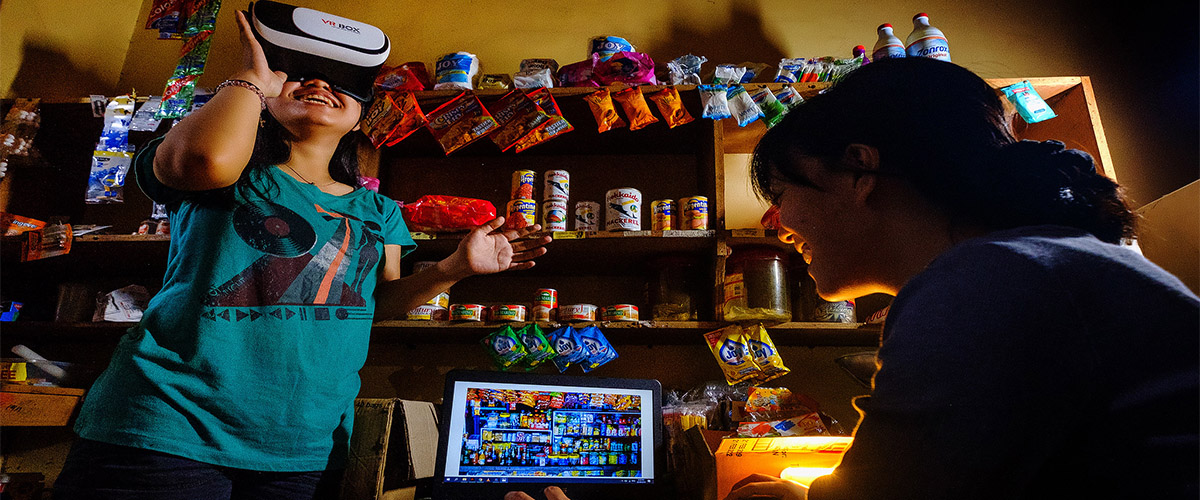
The UNESCO-UNEVOC International Centre: Who We Are | What We Do | Working With Us | Get in Touch
The UNEVOC Network: Learn About the Network | UNEVOC Network Directory
For Members: UNEVOC Centre Dashboard
Thematic Areas: Inclusion and Youth | Digital Transformation | Private Sector Engagement | SDGs and Greening TVET
Our Key Programmes & Projects: BILT: Bridging Innovation and Learning in TVET | Building TVET resilience | TVET Leadership Programme | WYSD: World Youth Skills Day
Past Activities: COVID-19 response | i-hubs project | TVET Global Forums | Virtual Conferences | YEM Knowledge Portal
Our Services & Resources: Publications | TVET Forum | TVET Country Profiles | TVETipedia Glossary | Innovative and Promising Practices | Toolkits for TVET Providers | Entrepreneurial Learning Guide
Events: Major TVET Events | UNEVOC Network News

Members of the global UNEVOC Network came together during two online workshops on 30 September and 01 October 2021 to exchange insights and propose interventions for UNESCO’s Strategy for TVET 2022-2029 under the theme “Transforming TVET for successful and just transitions”.
The consultations were organized jointly by UNESCO’s Section for Youth, Literacy and Skills Development and UNESCO-UNEVOC International Centre for Technical and Vocational Education and Training, as part of the broader consultation process regarding the Organization’s new Strategy from September to December 2021, with UNESCO Member States, TVET stakeholders, the private sector and other international and regional organizations.
The importance of TVET as part of a human-centred recovery was reaffirmed by Mr Borhene Chakroun, Director of the Division of Policies and Lifelong Learning Systems at UNESCO, in his opening remarks. He laid out key points for the discussion and highlighted the three strategic dimensions that are fundamental to repositioning TVET: a pathway for individuals to thrive, a catalyst towards sustainable economies, and a vector of social justice.
The two workshops brought together UNEVOC Centres from all five regions of the Network – Africa, Arab States, Asia-Pacific, Europe, North America and CIS, and Latin America and the Caribbean.
A panel discussion with selected UNEVOC Centres was a key feature of both workshops and provided a platform to examine the relevance of the problem statement, priorities and cross-cutting interventions outlined in the new strategy. Representatives from CICan, Canada; Duoc UC, Chile; Shenzhen Polytechnic, China; BIBB, Germany; NSDC, India; HEART Trust/NTA, Jamaica; TVETA, Kenya; University of Nigeria, Nigeria; and CENAFFIF, Tunisia shared their perspectives on the challenges the new strategy seeks to address and the additional synergies that should be considered. This was followed by an interactive session on the Miro platform, involving all participating UNEVOC Centres. Guided exercises in smaller groups enabled participants to actively share their inputs on the key components of the new strategy and created a space to collect their feedback.
In addition to the three strategic priorities to maximize the outcomes of the new strategy, UNESCO proposed cross-cutting interventions, actioning three levers: data and knowledge, normative instruments, and networks and partnerships. Some of the questions presented on the Miro board for UNEVOC Network members were: What do you like about the proposed UNESCO activities? What did you learn from the draft strategy? Did the strategy leave anything out? And what do you wish UNESCO could support you to achieve in your own context?
Several participants shared that the areas proposed are very relevant and thought UNESCO’s activities were positive, including giving importance to individuals as part of the system and understanding the world of work and the role which TVET plays in the post-COVID-19 recovery. Members of the UNEVOC Network also shared topics that they felt were lacking in the strategy and could be further discussed, for example, placing more emphasis on teachers and trainers and considering the health and safety of TVET learners.
The dynamic sessions provided a space where UNEVOC Centres were able to explore key elements and make contributions to further develop the new strategy. The Strategy for TVET 2022-2029 will build upon the achievements of UNESCO’s current TVET strategy and seek to generate a global momentum for TVET, contributing to the post-COVID-19 social and economic recovery and to an acceleration of progress towards the 2030 Agenda and the Sustainable Development Goals.